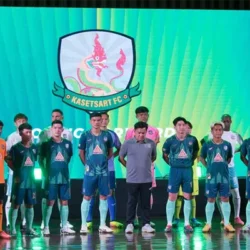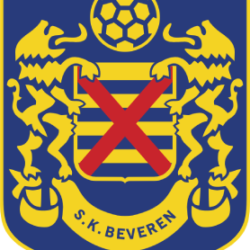Remo FC is not just a football team; it is a symbol of passion, resilience, and unparalleled excellence in Nigerian football. Established decades ago, Remo FC has grown into a powerhouse within the Nigerian football landscape, consistently demonstrating their prowess on the field. Their rich history, strategic management, passionate fan base, and emphasis on youth development make them the ultimate football club in Nigeria. In this comprehensive article, we will explore the history, achievements, club management, youth development programs, fan culture, and future prospects of Remo FC, shedding light on what truly sets this club apart in Nigeria’s competitive football scene.
The History and Origins of Remo FC
Understanding the roots of Remo FC is essential in appreciating its current stature as Nigeria’s premier football club. From humble beginnings to national recognition, their journey is marked by perseverance, strategic growth, and community involvement RR88.
The Founding of Remo FC and Early Years
Remo FC was founded in the early 1980s in Sagamu, Ogun State, a city known for its vibrant culture and passionate football fan base. Initially formed as a local club, Remo FC’s primary goal was to promote football development within the community and provide a platform for talented local players to showcase their skills.
During their initial years, Remo FC faced numerous challenges, including financial constraints and stiff competition from more established clubs. However, their unwavering commitment to the sport and community support helped sustain their growth. The club gradually ascended through the Nigerian football divisions, showcasing resilience and a strategic approach to talent scouting and player development.
- The club’s early years centered around creating a strong local identity rooted in community pride and football passion.
- Their grassroots development programs played a pivotal role in nurturing young talent, many of whom advanced to national and international levels.
- Despite limited resources, the club’s determination and collective effort propelled them towards becoming a recognized name in Nigerian football.
Major Milestones and Achievements in the Club’s History
Remo FC’s journey from a local community club to a major Nigerian football force has been marked by several milestones. These achievements reflect the club’s strategic growth, excellent management, and relentless pursuit of excellence.
Some of the key milestones include winning the Nigeria National League (NNL) and qualifying for the Nigeria Professional Football League (NPFL). Their promotion to the top tier of Nigerian football marked a significant turning point, enabling them to compete at the highest levels.
Another notable achievement was their victory in the Federation Cup, a prestigious national knockout competition that garners immense attention from fans and football stakeholders across Nigeria.
- Notable domestic titles include multiple league promotions and cup victories that solidified Remo FC’s reputation.
- The club’s sustained performance in the NPFL has placed them among Nigeria’s elite, competing against teams with deeper financial resources.
- Their consistent progression has also earned them recognition in continental competitions, such as the CAF Confederation Cup.
Evolution of the Club’s Management and Strategic Vision
Remo FC’s growth has been underpinned by strong management and a clear strategic vision aimed at sustainable success. The club has adopted modern management practices, emphasizing transparency, efficiency, and youth empowerment.
The leadership, comprised of seasoned football administrators and passionate local stakeholders, has prioritized infrastructure development, including training facilities, youth academies, and stadium upgrades. These investments have created a solid foundation for continuous growth.
Furthermore, Remo FC has embraced innovative approaches to talent acquisition, including scouting networks across Nigeria and neighboring West African countries. Their strategic focus on youth development ensures a steady pipeline of talented players who can contribute to both club success and national representation.
- The management’s commitment to transparency and community engagement has fostered strong local support.
- Investments in infrastructure have improved training conditions and facilitated better player development.
- Inclusion of modern analytics and scouting technologies enhances the club’s ability to identify and develop talent effectively.





